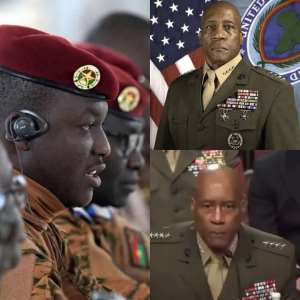
Burkina Faso stands at a critical juncture in its history. Since assuming leadership in September 2022, Captain Ibrahim Traoré has spearheaded a bold transformation, breaking away from entrenched foreign influence and steering the country towards self-reliance. His administration has challenged traditional power dynamics, driven economic reforms, and ignited a renewed sense of sovereignty. Yet, as his nation pushes forward, the specter of external interference looms large—raising concerns among those who have seen African leaders vilified and removed for daring to challenge the status quo.
Traoré’s governance marks a significant shift for Burkina Faso. His decision to expel French forces and reassert control over the country’s natural resources has resonated across Africa. Under his leadership, the economy has strengthened, with Burkina Faso’s GDP rising from $18.8 billion to $22.1 billion—a testament to the country’s growing independence. By prioritizing the local processing of resources, including gold and agricultural produce, Traoré has ensured that national wealth benefits Burkinabè citizens rather than being siphoned off by foreign interests.
Agriculture, the backbone of Burkina Faso’s economy, has seen unprecedented support under his administration. Farmers have been equipped with modern machinery, improved seeds, and necessary farm inputs, leading to increased productivity and greater food security. These efforts signify a leader dedicated to his people’s well-being—committed to strengthening internal resilience and reducing reliance on foreign aid.
But such bold steps often come at a cost. Accusations from General Michael Langley, head of the United States Africa Command (AFRICOM), claiming that Traoré has diverted Burkina Faso’s gold reserves for personal security rather than national welfare, mirror a troubling pattern. These claims have stirred skepticism, prompting comparisons to the narrative that led to the downfall of Libya’s Muammar Gaddafi.
Gaddafi, despite the controversies surrounding his leadership, was one of Africa’s most ambitious visionaries. His dream of a gold-backed African currency and his push for economic independence threatened established Western interests. In response, a campaign to discredit him gained momentum, culminating in NATO’s intervention in Libya in 2011. The result was not liberation, but chaos—Libya descended into instability, with external forces benefiting from its fractured state.
The parallels between Libya’s fate and the situation unfolding in Burkina Faso are unmistakable. Leaders who seek true African sovereignty often face disinformation campaigns designed to weaken their influence. If Burkina Faso is left vulnerable to such maneuvers, it may suffer setbacks that will take generations to undo.
Now is the time for African leaders and citizens to unite in defense of their sovereignty. Burkina Faso, under Traoré’s leadership, represents the aspirations of a continent striving for self-reliance. African nations must resist the external pressures seeking to undermine this progress. They must rally behind Traoré—not just as an individual to dictate its own future.
For the people of Burkina Faso, vigilance is paramount. Their country has embarked on a courageous path, defying external control and striving towards genuine independence. Traoré’s vision is not merely about governance—it is about rewriting the narrative of Africa’s role in the world. His leadership has inspired hope, but hope alone is not enough. Unity, resilience, and unwavering determination will ensure that the gains made today do not become tomorrow’s losses.
Burkina Faso must stand firm, and Africa must stand with it. The lessons of history demand it. The future of the continent depends on it.
Retired Senior Citizen
Teshie-Nungua
[email protected]


